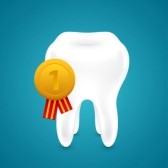When it comes to your dental health, there is no such thing as a dumb question. “Ask a Dental Hygienist” is the place where you can ask those questions and other questions you may have about dental health, prevention and dentistry in general. Take a look at the Q&A that have already been submitted, and then submit a question of your own.
Send your question to: Question@OralHealthNevada.com
A dental hygienist (RDH) is a dental professional, who is licensed by the Nevada State Board of Dental Examiners. Dental hygienists in Nevada have completed at least an Associate’s Degree in Dental Hygiene and have passed a national board examination, a clinical board examination, as well as a jurisprudence test given by the state. The Nevada Board of Dental Examiners outlines what the scope of practice is for a dental hygienist, which includes procedures which assess and prevent dental diseases, such as screenings, cleanings, x-rays, fluoride and dental sealants, as well as education. A dental hygienist in a dental office is working under the general supervision of a dentist and is required to complete a certain number of continuing education hours to keep their license.
Finally, always get your internet information from reputable and credible sites – in this case, the Centers for Disease Control (CDC), the American Dental Association (ADA), and even the American Academy of Pediatrics have reliable information about water fluoridation. You can also check out our Resources page for additional information and sources.
By visiting the dentist and dental hygienist for more frequent examinations and cleanings you are helping to prevent or control periodontal disease. Also, brushing with a soft bristled toothbrush and flossing at least daily is so very important. Managing your blood sugar is key for good oral health and good oral health is essential for managing your blood sugar. For more information on diabetes and oral health, tooth brushing and flossing, etc., visit our Resources page.
*** Note: “Ask a Dental Hygienist” will never provide a dental diagnosis nor will it provide instruction regarding specific treatment(s). For specific problems related to the teeth or mouth, “Ask a Dental Hygienist” always recommends that you see a licensed dentist for an examination, diagnosis, and/or treatment option(s).









